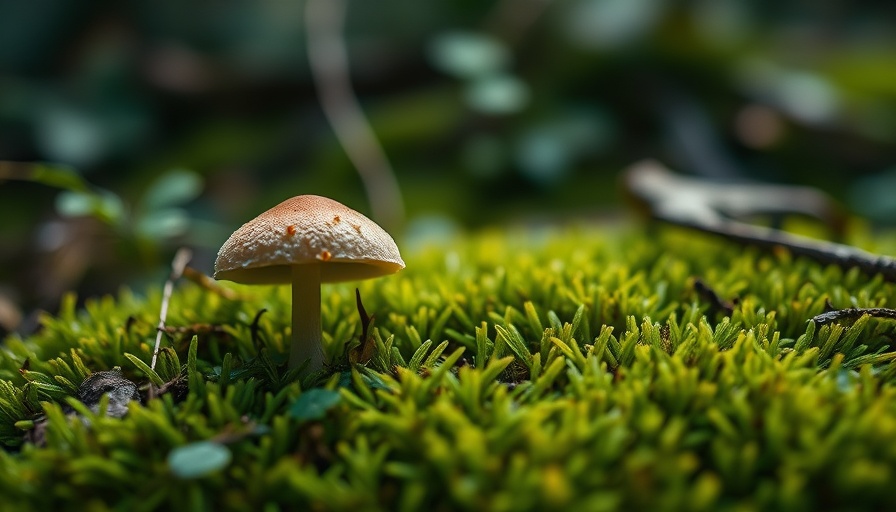
Understanding Fungi: Beyond the Ordinary
Recent advancements in our understanding of fungi have sparked a transformative conversation about our ecological roles. Traditionally, fungi were considered mere components of the plant kingdom, but scientific progression has revealed their unique characteristics and contributions. During COP16 in late 2024, Chile and the UK proposed classifying fungi distinctly under conservation policies as 'funga,' alongside flora and fauna. This historical moment highlights a rising recognition of fungi's importance in biodiversity.
The Unique Kingdom of Fungi
Did you know that fungi constitute an entire kingdom, housing around 2.5 million species? Unlike plants that rely on chlorophyll for energy, fungi find nutrition in their surroundings, sharing a lineage with humans that branches back 1.5 million years ago. This connection underscores the importance of fungi, not only in their survival strategies but also in their shared evolution with humans. Fungi can be categorized into three essential roles: saprobic, parasitic, and mutualistic. This tripartite classification reveals how fungi interact with their environment, playing critical roles in ecosystems across the globe.
Fungi: Nature's Power Players
Contrary to the common view that mostly regards fungi as potential pathogens, they are instrumental in enabling ecosystems to thrive. For instance, mycelia, the root-like structures of fungi, act as underground superheroes, enhancing plants' ability to absorb water and nutrients. In a symbiotic relationship, fungi not only benefit themselves but also improve plant health, demonstrating fungi's essential roles in ecological interactions.
The Environments Where Fungi Thrive
Fungi's adaptability is striking; they exist in environments ranging from the depths of the Dead Sea to the stratosphere. This omnipresence indicates their crucial roles in various ecological systems. For instance, as highlighted in Michael Hathaway's insightful book, "What a Mushroom Lives For," fungi have historically contributed to altering the Earth’s geology and supported life by nurturing plant growth in previously inhospitable areas.
The Cultural Significance of Fungi
Fungi's role in human culture cannot be ignored. Historically, they have provided essential resources, including food, medicine, and even materials for construction. Understanding their multifaceted roles can foster greater respect and preservation efforts within local communities. Ethnomycology, or the study of how different cultures use and perceive fungi, brings attention to the rich tapestry of their cultural significance, broadening appreciation and awareness of local mushroom varieties that may be overlooked by modern society.
Future Trends and Opportunities in Fungal Research
As fungi gain recognition, we are10 seeing a surge in research dedicated to their potential. From sustainable agriculture practices to innovations in biomedicine, fungi offer promising avenues for solving pressing ecological and health-related issues. As the conversation grows around 'funga,' we should prepare for possible future policies that underscore the need for conservation and sustainable practices concerning these organisms.
Decision Making for a Sustainable Future
With growing knowledge about fungi, now is the time for every individual, particularly homeowners and eco-conscious consumers, to consider how they can integrate practices that emphasize the health of fungi in their environment. Whether it’s through conscious gardening practices that promote mycelial growth or by supporting local biodiversity initiatives, every small step can help in recognizing the important role fungi play in our planet's health.
The rich world of fungi is often overlooked, but their contributions to both our ecosystems and our health are invaluable. By advocating for their recognition and understanding their roles, we encourage a deeper appreciation for the planet's biodiversity. As awareness grows, we must seize the moment and engage more in sustainable practices supporting all areas of life, including fungi.
Join the conversation about fungi’s role in sustainability and conservation! How can you incorporate fungi-friendly practices into your home or lifestyle? Exploring this journey could lead to healthier ecosystems and personal well-being, embodying the spirit of innovation as we delve deeper into the fascinating world of funga.
 Add Row
Add Row  Add
Add 



Write A Comment